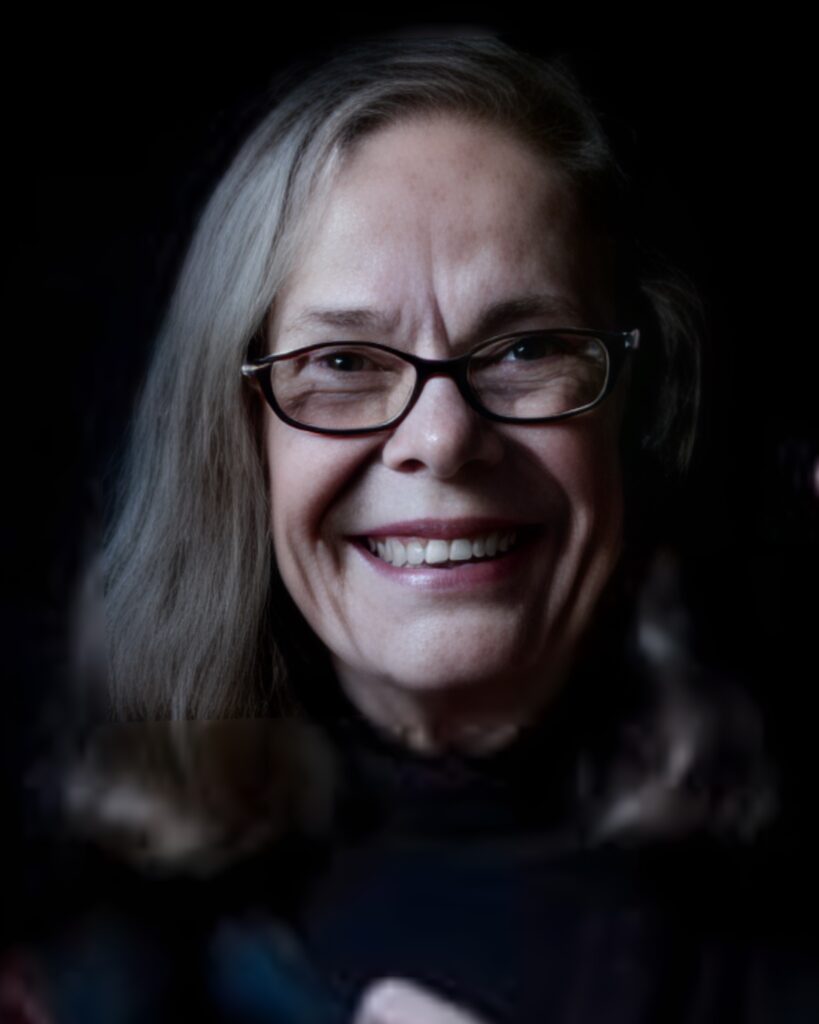Marguerite aka Maggi Rubenstein RN, MFCC, PhD, longtime bisexual and sex-positive community activist and faculty member at the private graduate program The Institute for Advanced Study of Human Sexuality in San Francisco, died on Monday, August 19, 2024, at her home in Red Bluff, CA, at age 93. Her cause of death has not been announced.
Maggi began her working life with a degree in nursing but soon became caught up—and became an important leader—in the cultural changes of the 1960s and ’70s for which the SF Bay Area was a petri dish and hotbed. She pivoted professionally and earned a counseling degree at the University of San Francisco, maintaining a private practice for the next four decades. She topped off this training by specializing in sex therapy via a doctorate from the Institute for Advanced Study of Human Sexuality (IASHS), which established its degree program in the late ’70s. She stayed on as a core faculty member (and Dean of Students after original faculty members Phyllis Lyon and Wardell Pomeroy retired), helping to train countless students in the academic study of human sexuality.

Maggi came out as bisexual in the 1960s (including a public statement in 1969 “during a staff meeting at a San Francisco mental health facility serving LGBT people,” per Wikipedia), and would not let this identity be minimized. As the lesbian and gay community grew in size and influence in the 1970s and ’80s, she became famous for going to meetings from the Castro to City Hall and shouting “and bisexual!” whenever the “L&G” was not followed by the “B”. She stayed deeply engaged with the queer community of the times, her political work including strong ties to the Harvey Milk Democratic Club, from which she received the Harry Britt Lifetime Achievement Award in 2010 for promoting awareness of bisexuality.
Maggi and other bisexual activists (notably David Lourea, who became her colleague at IASHS) became a vitally important voice in the largely binary queer community, making space for a less “either/or” way of thinking about sexual orientation that has truly flowered in the 21st century. With Harriet Leve, Maggi founded the SF Bisexual Center in 1976; David’s home in the Haight served as the location of the Bisexual Center for a number of years. Gradually the bisexual community in the Bay Area grew to include other organizations, including BiPOL and Bay Area Bisexual Network; Maggi was a co-founder or each of these. Maggi was and is widely embraced as a bi community pioneer. She was honored at SF Pride as its Community Grand Marshall in 1992.
In 1972, Maggi was one of three founders of San Francisco Sex Information, which trained volunteers to run an anonymous phone hotline to answer questions about sex. Initially supported by Glide Community Church and its charismatic founder the Rev. Cecil Williams, the SFSI training used the newly-developed SAR (or Sexual Attitude Restructuring/Reassessment) method of sex education to help students identify any “buttons” or biases. This process, developed by the National Sex Forum—the organization out of which IASHS emerged, and that Maggi was also part of—became the foundational teaching method of the Institute and subsequently a core training modality for sex therapy students.
Maggi was a deeply influential participant in the rise of the modern sex-positive sex education community in part because SFSI consolidated information about sex and the professionals studying and providing support to sex-identified communities and individuals grappling with their sexuality. They also recognized the value of those communities themselves–they became an integral part of SFSI and SAR trainings and would make a huge difference in the way the so-called “San Francisco model of AIDS care” developed in the 1980s. Maggi and SFSI shared these resources with the San Francisco AIDS Foundation as it established its own phone hotline. SFSI was also the first to start a website and bring sex education online.
Maggi’s nursing school training made her alert to a brewing health crisis in the early 1980s; sexologist Robert Morgan Lawrence DC, EdD remembers her telling SFSI trainees that the new disease emerging in communities of men who had sex with men was likely sexually transmitted and urging condom use. (She even warned that masks might prove necessary!) The Institute was a central point for teaching about safer sex and other relevant points about HIV/AIDS—students from around the country and the globe, in SF to pursue advanced degrees in sexology, learned how to teach about the new disease from Maggi and her colleagues in the Sexologists’ Sexual Health Project, who began in the early days of the epidemic to do active outreach to bars and sex clubs. Institute students also confronted their biases in a newly-developed “Safe Sex SAR,” the Sexual Health Attitude Restructuring Program, or SHARP.
After retiring from IASHS, Maggi led a private life in the Glen Park home where she had lived since the 1960s (and subsequently conducted her private therapy practice). She moved to Northern California in 2017.
A celebration of life for Maggi Rubenstein is planned but does not yet have a firm date.






